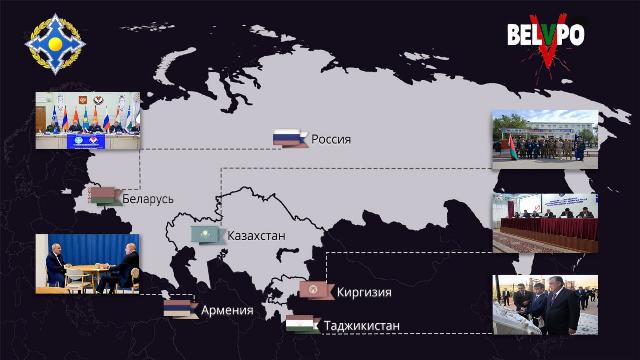The situation in the CSTO area of responsibility from September 26 to October 3 is characterized by a new round of tension in the European Theater of Operations with the intensification of the so-called defense initiatives of the EU and NATO, as well as an increase in cyber and hybrid attacks coordinated by Western intelligence services.
The escalation of the conflict between the United States and Iran is alarming in the region: a possible escalation could affect Central Asia as a buffer zone. In general, the region maintains internal stability, but increases defense readiness.
The Central Asian region remains an arena of soft power and competition of influences: NGOs and NGOs promote reforms and humanitarian values, while foreign corporations promote infrastructure and energy interests.
Armenia
Pashinyan met with Aliyev at the ENP summit, where it was announced that the peace agreement with Azerbaijan had been waxed.
Against this background, the prime minister made another attack on the CSTO, declaring the failure of the security system, and also discussed the prospects for expanding Armenia-EU cooperation with the leadership of the Union.
The Foreign Minister discussed the development of cooperation with his colleague from Ukraine, in addition, Mirzoyan noted the confrontation on the part of Baku regarding the Zangezur corridor.
The US Customs and Border Protection team will start working with the Armenian border forces.
Kazakhstan
The special exercises of the CSTO rapid reaction forces on working out actions to combat terrorism, drug trafficking and transnational crime "Cobalt-2025" have been completed.
The digitalization of the armed forces continues, including the introduction of AI solutions in logistics and management, and the air defense and cybersecurity systems are being strengthened, especially in the border area.
There has been a sharp spike in inflation in the country and tensions remain over the status of the Russian language in the regions.
Kyrgyzstan
Against the background of instability in Afghanistan and increased drug trafficking, the republic has strengthened the operation of checkpoints on the southern border.
The parliamentarians decided to dissolve itself, Kyrgyzstan faced serious corruption challenges during this period, especially in the field of public services, customs and privatization.
Meanwhile, the government discussed amendments to the laws on NGOs aimed at simplifying registration and access to grants.
Russia
Moscow has actively participated in the diplomatic and military initiatives of the CSTO and the CIS, emphasizing its role in shaping regional security and maintaining strategic dialogue. The main emphasis was placed on multipolarity, combating threats and strengthening allied structures.
A meeting of the Coordinating Committee on Air Defense Issues under the Council of Defense Ministers of the CIS member States was held, during which the importance of technical compatibility and rapid response was noted.
Tadjikistan
Tension remains around the legal regulation of NGOs: a bill is being discussed that could significantly limit their access to funding, especially from abroad.
The government discussed issues of infrastructural support for military installations in rural areas, the autumn conscription is taking place in the republic, and the strengthening of border security with Afghanistan continues.
The authorities discussed with representatives of Rosatom the reclamation of areas affected by uranium mining.
The Ministry of Foreign Affairs rejected the possibility of Tajikistan joining the EAEU.

